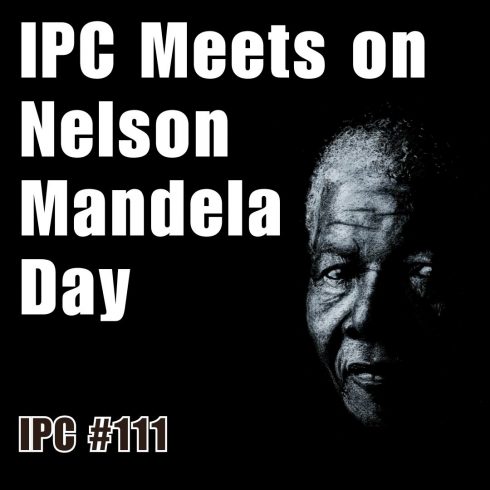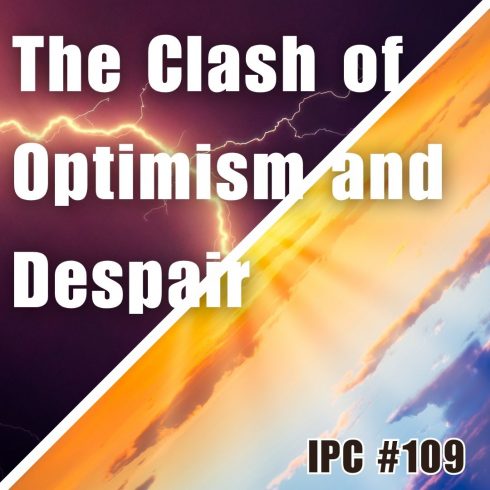International Peace Coalition #121
Sept. 27, 2025 (EIRNS)—The 121st consecutive online forum of the International Peace Coalition (IPC) took place on Friday, Sept. 26. Helga Zepp-LaRouche, Schiller Institute founder and International Peace Coalition initiator, opened the proceedings by stating that the moral fitness of the world is being tested. She commented that at the same time that she was speaking, Israeli Prime Minister Benjamin Netanyahu was addressing the United Nations General Assembly, but noted that his speech was delayed when a large group of UN delegates walked out, causing some disorder, just as Netanyahu was about to utter his first words. Zepp-LaRouche made the point that Israel put up billboards around New York City reading “Remember October 7,” implying that Netanyahu was justified to commit any atrocity to seek revenge. She said that conditions in Gaza go beyond description, people in Gaza City are being forced to evacuate, but most people have no transportation, no food, no water, no medicine, etc. Thousands are fleeing, but they don’t know where to go since buildings are being bombed, including schools, hospitals, mosques, etc. Later in the dialogue, Zepp-LaRouche criticized the possibility that Britain’s Tony Blair might become a “temporary governor” of Gaza.
Zepp-LaRouche said that Netanyahu wants another meeting with U.S. President Donald Trump in order to gain approval for another military strike on Iran, but noted that the mood of the U.S. population is shifting quickly against Netanyahu’s endless warmongering. She also noted the increased global resistance to this, as Iran is now receiving more military assistance from Russia and China, and there is a greater resolve among Arab nations, especially after the Israeli attack on Doha, Qatar. While much of the media highlight Trump’s recent comments in support of Ukraine as a new political U-turn, Zepp-LaRouche was more open to the suggestion that Trump is merely anxious to dump the problem on the Europeans. However, she was not sure that Europe could “fill the void,” despite its massive military buildup and spending surge. Ukraine is losing the war—if it has not already lost the war—likely with 1.7 million casualties, even though some view it like a bank that is “too big to fail.”
Zepp-LaRouche told the audience that all of Europe, and especially Germany, is being hit with psychological warfare so as to whip the population into an anti-Russia frenzy. There is now hysteria over alleged violations of NATO airspace, a claim which Russia has responded to by stating that their airspace is constantly being violated. President of the European Commission Ursula von der Leyen has even said that shooting down Russian planes “is on the table.” Large military exercises are currently underway in Hamburg, Germany, which are specifically aimed at the involvement of civilians, while Germany’s Defense Minister Boris Pistorius has said that the social state must be dismantled in order to spend €83 billion on tanks, artillery, and jet fighters. However, Zepp-LaRouche warned that any war will quickly become a nuclear war, and all that military hardware will be vaporized. She called on everyone to participate in and promote the Oct. 3 demonstrations in Berlin and Stuttgart to stop the war insanity, like the successful, massive demonstrations in the 1980s. She said that the very existence of Germany depends on this effort. She said that the root of all this hysteria is a fear on the part of the Western geopoliticians of the rise of the Global South.
A leader of the Schiller Institute in Mexico, Alberto Vizcarra, spoke next and gave a report on the just-concluded conference in Mexico City of farm leaders from nine states across the country. The conference was held at the National Autonomous University of Mexico’s School of Economics. Attendees included the 91-year-old Cuauhtémoc Cárdenas, an engineer and former Mexican presidential candidate, leaders in the school’s economics department, and a very large contingent of young people. The Mexican farm leaders gave a picture of the dire economic crisis facing agriculture under free trade agreements that their government has tolerated. A highlight of this conference was the reading of a support letter from farm leaders in the United States who are suffering from the same policies, and identified the problem of global bankers and food cartels destroying farmers around the world. Vizcarra said that if Mexico would join with the BRICS and other Global South economic initiatives, there would be no need to break with the United States.
Dr. Apurba Kumar Bardalai, a retired Major General from the Indian Army, spoke of his experience as the leader of the United Nations peacekeeping effort in Lebanon, UNIFIL. He promoted the spirit of the anti-colonial, pro-development, 1955 Bandung Conference, but was critical of the hypocrisy of the controllers of the United Nations. He said that while the UN Charter is based on international law and principles of the 1648 Treaty of Westphalia, Winston Churchill subverted it to his obsession of building a worldwide opposition against Russia. The UN became a pawn in the hands of just a few “permanent five” countries. Peace can be won when the powerful countries decide to prevent a war, such as the 1956 Suez Crisis. However, other wars are acceptable, such as his experience in Lebanon. He praised the Schiller Institute’s commitment to economic development as a road to peace and warned that if we fail in peace, the consequences will “haunt us forever.”
A video clip of an EIR interview with Col. Douglas Macgregor (ret.), conducted by Diane Sare, was played in which Macgregor questioned the “success” of the Trump administration reducing it to “Biden II.” He said that the economic folly was leading to war, the collapse of the dollar, and economic default. But Macgregor said that much of the world is finding success in a new direction. He said that the U.S. should look for a way to deal with the coming default without hurting the population, but said that Trump is surrounded by Wall Street billionaires and does not see any other option.
Army veteran and leader in the Eisenhower Media Network Josephine Gilbeau then spoke, stressing the importance of all citizens of the world uniting for peace despite all the petty differences that we may have. She watched 13 hours of the speeches at the UN General Assembly, and said she was left feeling disappointed. She spoke of the Freedom Flotilla and the threats from Israel to the passengers.
Schiller Institute activist in Canada Ilko Dimov spoke of the importance of using classical culture to give people a higher identity and create a society based on Renaissance principles, and showed examples of his own art work to exemplify the point. He said that when President Trump speaks of John Locke and Thomas Hobbes, we need to speak of Friedrich Schiller and beauty. Only this quality can provide a resistance to the moral crisis in the population. This issue would come up later when a question was asked whether President Trump was too erratic and should be removed with the 25th Amendment. IPC co-moderator Dennis Small answered that Trump has been oscillating for some time, but a bigger problem was the identity and lack of thinking by the American public. Small said that Americans have to think more like John Quincy Adams. Helga Zepp-LaRouche answered by asking who would replace Trump? She said that the most urgent problem is the threat of World War III, and that this is her top priority.
A former member of the European Parliament from Latvia brought up the danger of conflict in Moldova, and pointed out that former British Prime Minister Boris Johnson has been traveling in the area. An important question came from a person in Venezuela asking about the threats to his country from President Trump, and how ideologues like Evan Ellis have said that a war with Venezuela would be a “cake walk.” Small replied that this is part of the “law of the jungle,” and its objective is to stop Ibero-American countries from working with China or the Belt and Road development plans. He said that this is not just a threat against Venezuela, but the same faction is also committed to destroying the Lula government in Brazil.
Later in the dialogue Mrs. Zepp-LaRouche warned of the danger of a new fascism to manipulate the public with censorship and control over all its data. She mentioned Peter Thiel and his article “The Straussian Moment,” wherein he presents the idea that since 9/11 the only way to have security is to surrender freedom.
However, it is not sufficient merely to expose the problems of the world, she said. We must give people a way out. The West would be welcomed with open arms if it engages in a cooperative spirit with the Global South. Our biggest task is to organize and educate the nations of the West, and create this new paradigm, Zepp-LaRouche concluded.
















